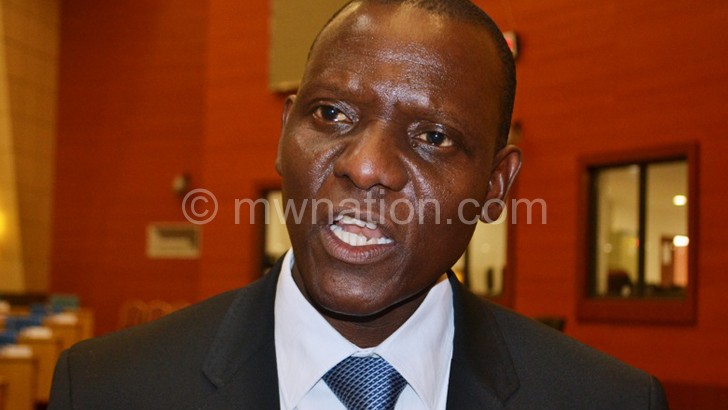‘Agreements to broaden trade ties’
Recently, Malawi signed Joint Permanent Commission of Cooperation (JPCCs) with Zambia and South Africa, which seeks to broaden the trade ties between the two countries. Our reporter WATIPASO MZUNGU was among journalists that attended the JPCC signing ceremony, which took place in Lusaka, Zambia, from 4th to 6th April, 2017. In this interview, Mzungu sought explanation from the Minister of Foreign Affairs and International Cooperation FRANCIS KASAILA on nitty-gritties of the agreement and the economic and trade benefits Malawians stand to gain from it. Excerpts:

What is meant by Joint Permanent Commission of Cooperation and what is its relevance?
Generally, in bilateral relationship, it is required that you should have some sort of a framework that will be guiding the relationship [between two countries]. And therefore, the JPCC is a framework that was developed to for use by almost all member states. JPCC helps us manage our international cooperation.
Lately, we have seen Malawi signing and reviewing JPCCs with at least four countries now and we are told you are going to sign another one with Zimbabwe soon. Is there a specific reason you are signing these agreements now?
You are very right! We have indeed signed a number of agreements over the past few months. Of course, the majority of them were aimed at reviewing the existing agreements so that we incorporate business in different sectors and ensure that we are implementing our framework efficiently and effectively.
So, we have been meeting our colleagues in South Africa, Tanzania, Zambia and in Rwanda. Rwanda it was for the first time. We will continue. Very shortly we will be reviewing our JPCC with Zimbabwe and we will continue with that process because when we have an updated framework, it will assist sector ministries do their work more efficiently and more effectively.
But why has it taken us such long to sign these agreements?
Well, that is something regrettable. It is important that every three years, these JPCCs are supposed to be reviewed. But because of other constraints such as financial and others, you find that it is edifficult to travel or any State to send a delegation to these meetings. We believe that to a certain extent it has been an issue of commitment on the part of the States. Others think JPCCs should not be taken as a priority. But for us in diplomatic and international cooperation, this is a an important undertaking. This is one of the tasks we have as a ministry to make sure that our JPCCs are reviewed, updated and are current.
Can you give us a highlight of the areas of cooperation in the signed agreements we have signed so far?
Our areas of cooperation vary from country to country. But broadly all sectors of our economy are covered. But in terms of priority focus, for most of our neighbouring countries, we have issues to do with trade, immigration, security, agriculture, among others. In most cases, these are very important to our neighbouring countries because we have to make sure that our region is secure, we are able to manage the movement of our people, we are able to do trade and move goods and services.
During the Lusaka meeting, you signed and adopted Double Taxation Avoidance Agreement (DTAA). What does DTAA mean?
A
We indeed concluded and signed the DTAA. This aims to encourage and increase the flow of investment between the two countries, by reducing the cost of doing business. In addition, the MoU on Tourism was also finalised and it is ready for signature and progress was also made on negotiations on Memoranda of Understanding (MoUs) on diplomatic and political consultations; public service management and administration, health, refugees matters, immigration and police.
Zambia also committed themselves to review the Zambia-Malawi Mozambique Growth Triangle (ZMM-GT), review the list of eligible products to broaden coverage in order to increase the volume of trade for the economic benefits of small and medium scale business traders, we have also agreed to expedite the process of the establishment of the One-Stop Border Post (OSBP) at Mchinji/Mwami, as part of the joint efforts to ease cross border trade, and collaborate in the implementation of the Shire Zambezi Waterway project.
At the end of the day, how will a common Malawian benefit from these agreements?
The major objective of the JPCCs is to empower our people so that they are able to do business freely between and among countries we are in cooperation with. This will contribute towards economic development of their households as well as the nation at large.





